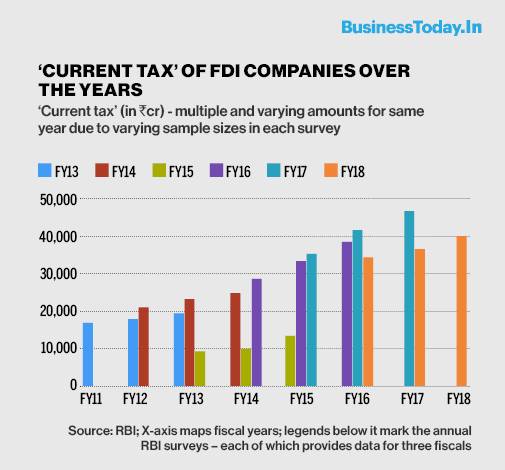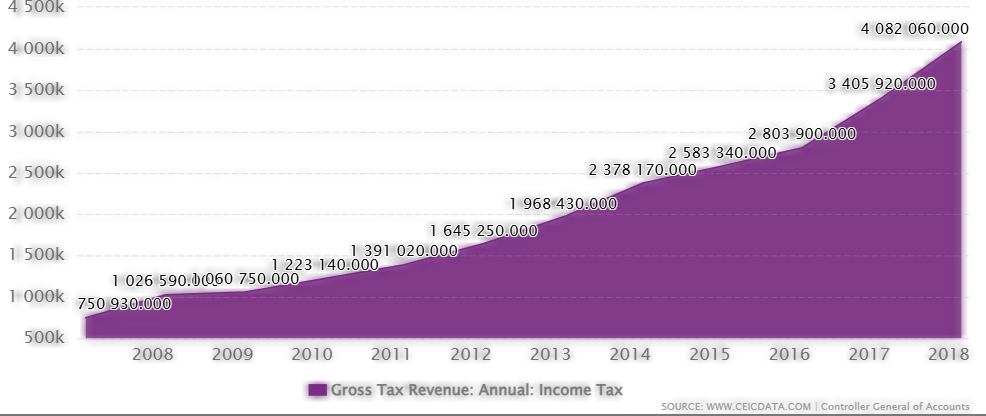
Jane Street Tax Probe Deepens as EY Pulled Into Investigation: When it comes to Wall Street powerhouses, Jane Street Capital is one of those names whispered with respect in trading circles. Known for its sharp trading strategies and global reach, the firm has often been portrayed as the wizard behind some of the world’s most complex financial trades. But recently, the story has taken a new turn: Jane Street is facing a deepening tax probe in India, and now big-name auditor Ernst & Young (EY) has been pulled into the mix. This isn’t just about one company in hot water—it’s about how governments are cracking down on multinational firms, double taxation treaties, and what happens when regulators suspect someone’s trying to game the system.
Jane Street Tax Probe Deepens as EY Pulled Into Investigation
The saga of Jane Street’s tax probe in India is more than a corporate spat—it’s a litmus test for how governments handle multinational tax strategies in the 21st century. With EY now in the spotlight and Indian authorities digging deep, the outcome could reshape how global trading firms structure their operations. One thing’s for sure: the days of hiding behind complex offshore structures are fading fast. And whether you’re a Wall Street pro or a curious 10-year-old, this case is a masterclass in why playing by the rules matters.
| Point | Details |
|---|---|
| Who’s Involved? | Jane Street Capital (global trading firm), EY (auditor of Jane Street’s Indian arm), Indian Tax Department. |
| What’s Happening? | India’s tax department is investigating whether Jane Street used treaty loopholes and offshore control to dodge taxes. |
| Why It Matters? | Could lead to loss of treaty benefits, GAAR (General Anti-Avoidance Rules) application, and hefty tax bills. |
| Current Status | EY summoned, Jane Street accused of not cooperating, records reportedly offshore. |
| Industry Impact | Sets precedent for how regulators worldwide deal with multinational firms’ cross-border tax structures. |
| Reference | Indian Income Tax Department Official Website |
The Backstory: Jane Street’s Global Game
Jane Street Capital, headquartered in New York, is one of the most powerful trading firms in the world. According to Forbes, the company trades trillions of dollars every year, specializing in everything from ETFs to crypto. In fact, they’ve earned a reputation as being quants on steroids—using high-tech algorithms and math models to stay ahead of competitors.
But with big money comes big scrutiny. Indian authorities are now zeroing in on whether Jane Street’s Indian arm is really independent—or just a puppet for decision-making happening in Singapore or Hong Kong. Why does that matter? Because if the real brain is offshore, India may say: “Hey, you’re making money here, you owe us taxes here too.”

Why EY Is in the Hot Seat?
When the Income Tax Department in India started investigating, they quickly realized that to get the full picture, they needed to speak with EY, Jane Street’s auditor in India. Auditors are supposed to check the books, verify compliance, and raise red flags when needed. So regulators think EY may have valuable information about who really controls Jane Street India.
It’s kind of like when the teacher calls in the substitute teacher to ask if the kids were really doing their homework—or just pretending.
The Core Issue: Control and Treaty Loopholes
The case is about more than just taxes—it’s about control.
- If Jane Street India is truly independent, it gets to carry forward losses to offset future profits, lowering its tax bill.
- If India proves the decisions come from abroad, those benefits go away.
- This also opens the door for applying GAAR—India’s anti-tax-avoidance law.
According to Reuters, this could translate into billions of rupees in tax demands. To put it in perspective, that’s like a surprise bill running into hundreds of millions of U.S. dollars.
Jane Street’s Alleged Non-Cooperation
Reports suggest Jane Street hasn’t exactly been a model student in this investigation. Authorities say:
- The company’s servers and financial records are outside India.
- Staffing in India is minimal—so on-the-ground answers are scarce.
- Attempts to get documents from Jane Street and its clearing partner Nuvama Wealth have been obstructed.
This has made the investigation tougher, but regulators aren’t backing down.
A Historical Context: India vs. Tax Giants
India has a track record of going after global companies on taxation:
- Vodafone Case (2007–2012): India sought over $2 billion in taxes from Vodafone for buying an Indian telecom company via offshore routes. The case dragged through international courts before India eventually rolled back retroactive tax laws.
- Cairn Energy Case (2014): India retroactively taxed the British oil company, leading to years of arbitration and reputational fallout for India’s investment climate.
- Tech Giants: Global giants like Apple, Google, and Amazon have all faced probes for routing profits through Ireland or other tax havens.
Jane Street’s case fits into this trend. Governments are tired of seeing profits shifted abroad while local entities declare minimal income.
What Is GAAR and Why It’s a Game-Changer?
GAAR (General Anti-Avoidance Rules) is India’s tool to combat aggressive tax avoidance. It allows tax authorities to disregard or override transactions if the main purpose is to avoid taxes.
Think of GAAR like a basketball referee: even if the player technically didn’t break a rule, if they’re exploiting a loophole in bad faith, GAAR blows the whistle.
This scares multinational corporations because it gives regulators broad discretionary power to challenge sophisticated tax structures. It’s no longer just about following the letter of the law—it’s about the spirit of the law.

Global Implications for Multinationals
Jane Street isn’t alone in this game. Thousands of companies rely on Double Taxation Avoidance Agreements (DTAAs) to structure operations. If India makes an example of Jane Street, here’s what could happen:
- Stricter Compliance – Firms may be forced to beef up local operations, hiring more staff and running more processes onshore.
- Auditor Accountability – Big Four firms like EY, Deloitte, PwC, and KPMG may face tougher questioning about how much they really know.
- Global Ripple – Countries like Brazil, Indonesia, and South Africa could adopt similar aggressive tax stances.
It ties back to the OECD’s push for a global minimum tax of 15%, designed to stop the “race to the bottom” where companies shop around for the lowest-tax jurisdiction.
Jane Street Tax Probe Deepens as EY Pulled Into Investigation: A Step-by-Step Guide to Understanding the Case
Step 1: Know the Players
- Jane Street: A trading powerhouse with trillions in assets.
- EY: Auditor of Jane Street India.
- Indian Tax Department: The watchdog determined to test treaty loopholes.
Step 2: The Tax Strategy in Question
Jane Street may have relied on treaty shopping—routing investments through countries like Singapore or Mauritius to minimize taxes.
Step 3: The Possible Fallout
- Loss of tax treaty benefits.
- GAAR penalties applied.
- Hefty tax bills running into billions.
Step 4: The Global Context
This case isn’t just about one firm—it’s about how cross-border tax rules are evolving, especially in emerging markets.
Expert Commentary
Tax experts have long warned against aggressive treaty shopping. According to the OECD, governments lose $100–240 billion annually due to base erosion and profit shifting (BEPS). India’s aggressive stance reflects this broader frustration.
As one former Indian tax commissioner put it: “When companies treat countries as hotels—checking in and out to save taxes—they shouldn’t be surprised when the bill comes due.”
Practical Advice for Businesses and Professionals
- Don’t rely solely on tax loopholes: Global regulators are aligning against treaty shopping.
- Work closely with auditors: They aren’t just accountants—they’re the first line of defense in compliance.
- Expect transparency demands: With global minimum taxes and BEPS rules, regulators want open books.
- Prepare for long fights: Vodafone and Cairn spent years battling India, costing millions in legal fees.
For professionals in compliance, tax law, or finance, the takeaway is simple: shortcuts today could mean lawsuits tomorrow.
NMMC Rolls Out Property ID Cards – Here’s How It Will Change Tax Payments
India’s Tax Reform Needs Economics, Not Politics — The Hard Truth
Planning A Second Home? These Tax Rules On Rental Income Could Cost You










